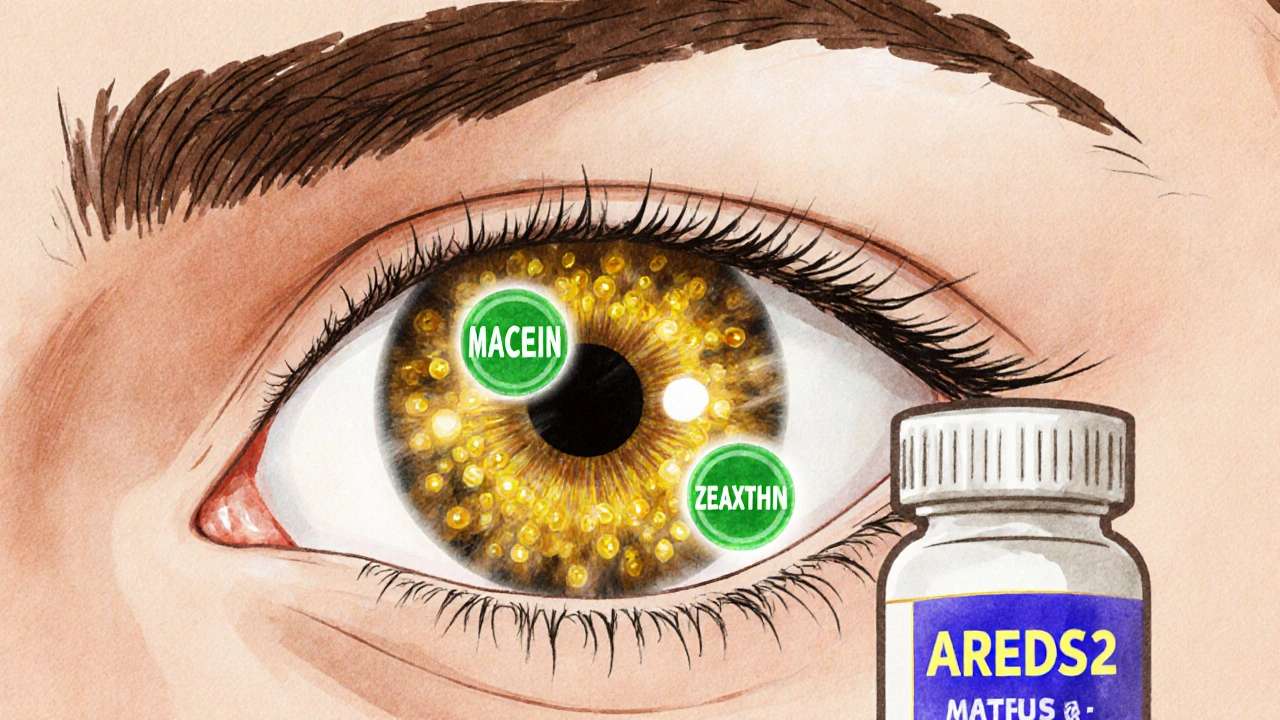Lutein and Zeaxanthin: What They Do for Your Eyes and Why You Need Them
When you think about eye health, you probably think of reading in good light or getting enough sleep. But there’s a quiet hero working inside your eyes every day: lutein, a yellow carotenoid pigment found in leafy greens and egg yolks that accumulates in the macula to filter harmful blue light. Also known as macular pigment, it’s one of the two main compounds that shield your central vision from damage over time. zeaxanthin, a closely related compound that works alongside lutein to block UV and high-energy visible light. Together, they form the only known dietary antioxidants that concentrate directly in the retina. These aren’t vitamins you can make yourself. You have to get them from food—or supplements—because your body doesn’t produce them.
Most people don’t get enough. Studies show that the average American consumes less than 2 milligrams of lutein and zeaxanthin daily, while experts recommend at least 6–10 milligrams to support long-term eye health. That’s why people who eat spinach, kale, corn, red peppers, and eggs regularly tend to have stronger macular pigment density. It’s not just about preventing blurry vision—it’s about stopping age-related macular degeneration before it starts. The AREDS2 study, which tracked over 4,000 adults, found that adding lutein and zeaxanthin to a supplement formula reduced the risk of advanced macular degeneration by about 18% in people already at high risk. That’s not a miracle cure, but it’s one of the few proven, safe, food-based defenses we have.
These nutrients don’t just sit there. They act like internal sunglasses, absorbing the blue light that comes from screens, LED bulbs, and sunlight. That’s why they’re especially important now—more of us are staring at digital devices for hours every day. And unlike sunglasses, which only block light from the outside, lutein and zeaxanthin protect from within, right where the damage happens. They also reduce oxidative stress, which is linked to cataracts and other age-related eye changes. If you’re over 40, spend long hours on screens, or have a family history of vision loss, you’re not just being cautious—you’re being smart.
Below, you’ll find real-world insights from people who’ve looked into how these nutrients interact with medications, diet, and lifestyle. Some posts explore how they fit into broader health patterns—like nutrient absorption issues, inflammation, or even how other supplements affect their effectiveness. You won’t find fluff. Just clear, practical info on what works, what doesn’t, and what you should actually be eating—or avoiding—to keep your vision sharp for years to come.

AMD Vitamins: What the AREDS2 Study Says and Who Really Needs Them
AREDS2 vitamins are a proven supplement formula for slowing advanced age-related macular degeneration. Learn who should take them, what’s in them, and why they don’t work for prevention or early AMD.





